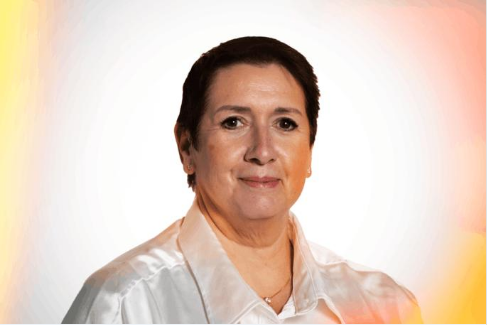Transformation and digitalization have accelerated in recent years, driven by the Covid-19 crisis and remote working. Today, we find ourselves in a time when innovation is more important than ever, unleashing a wave of disruptive opportunities for the fund industry.
In a world in motion where digitalization has accelerated in recent years, boosted by circumstances such as the Covid-19 crisis, there is still much work to be done. Today, we find ourselves in a time when innovation is more important than ever.
” Today, we find ourselves in an era where innovation is more important than ever.”
 Karine De Bondt – COO, i-Hub
Karine De Bondt – COO, i-Hub
Investment firms are essentially forced to invest in areas they previously avoided, such as digital transformation and advanced analytics. These are now at a unique time when they can leverage innovation more than ever. This crisis has highlighted the importance of digital capabilities and products, as well as the importance of speed and seamless integration.
This is the case, for instance, for the onboarding process, which in the world of funds is often done remotely but rarely digitally. Indeed, the required documents are still largely provided by fax or email, requiring manual processing and data entry that struggles to be automated. Original documents are still legion and electronic signatures are rarely used, making all the activities related to the fight against money laundering and terrorism financing as well as to the knowledge of customers administratively time-consuming because they are not automated.
Digitized, KYC Due Diligence verification solves a large part of these problems. It is no longer necessary to send documents by mail and the entire process can be done remotely, in the comfort of the end-users’ home or workplace, on their own electronic devices.
It is precisely these processes that i-Hub is working on with the objective of helping its clients to offer their investors, distributors and intermediaries a digital journey throughout the life-cycle of the business relationship and therefore make AML/KYC related activities more fluid and efficient for all stakeholders.
As a trusted partner, i-Hub aims at facilitating the collection of data and documents from investors, distributors and intermediaries of its clients, “the end-customers”, by offering them the possibility to benefit from a free, secure and Luxembourg-hosted file. In this way, the Onboarding process, but as well the management of this same relationship becomes an interactive process that allows the end client to respond to requests for document renewal or data management through access to his personalized file on the i-Hub platform.
“i-Hub aims to facilitate the collection of data and documents from its clients’ investors, distributors, and intermediaries.i-Hub aims to facilitate the collection of data and documents from its clients’ investors, distributors, and intermediaries.”
 Karine De Bondt – COO, i-Hub
Karine De Bondt – COO, i-Hub
As soon as an end-client is created on the platform, at the very beginning of the relationship, he can access his file and enrich it with the required documents and data. The latter are automatically defined within the platform based on the client’s risk-based approach. This avoids the numerous backs and forth that is often the rule today.
He can also, subject to consent, share his information with all his business relations, thus avoiding having to provide the same data and documents several times. During the business relationship, the end client may also proactively maintain its file and notify its counterparties of changes in circumstances. He will then be automatically asked to provide the supporting documents.
These interactive processes create value for both the client and the end customer. When outsourcing all or part of the AML/KYC activities, the client relies on i-Hub to keep its records up to date. The end client can maintain his file centrally, share it with all his business relations and thus lighten his administrative burden by not having to respond individually to requests for updates from his counterparties.
Regulatory practices are also changing. It is extremely important that through all this innovation and development, regulatory standards are maintained at the highest level to ensure full compliance with AML/KYC regulations.
To that end, the Financial Action Task Force (FATF) now recommends using digital onboarding whenever possible.
It is now clear that the future of KYC procedures is digital and that changes need to be made now to continue this movement. I-Hub has been working in this dynamic since 2017 and has all the assets to strategically support the fund industry.
